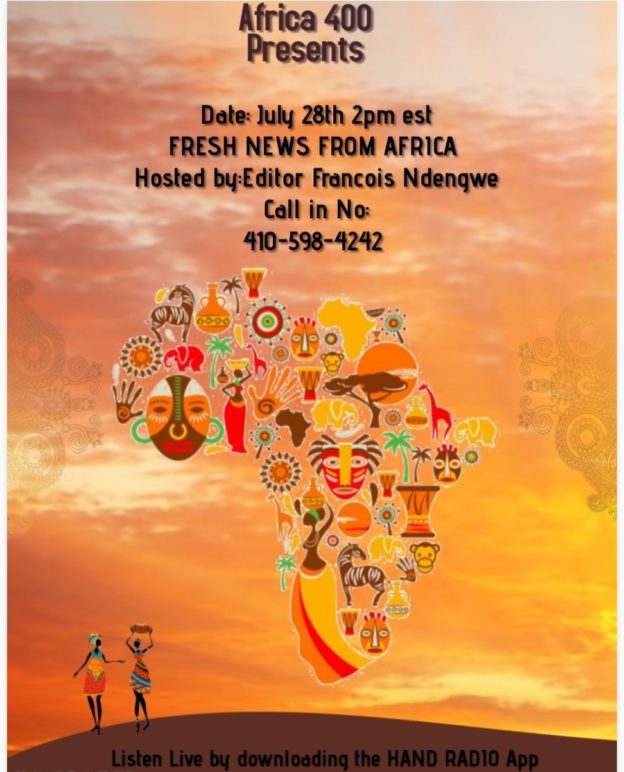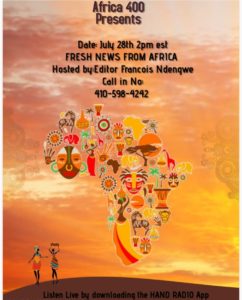EDITOR’S NOTE: Justice Initiative, an Atlanta-based organization founded by Heather Gray, occasionally shares articles, analyses and commentaries for this Web site. Here, they offer a tribute from The New York Times about human rights activist and educator Bob Moses, who transitioned to the Honored Ancestors on Sunday, July 25.
JUSTICE INITIATIVE
Note: Bob Moses died this past Sunday, July 25, 2021. Please see below the New York Times article about Bob Moses.
Over the years of my work in civil and human nights advocacy throughout the South, Bob Moses has been invariably referred to for his remarkable organizing work and relentless ‘never give up’ mentality. What was also so impressive about Bob Moses is that his organizing work was never to seek accolades for himself. What he did was always in the interest of building a ‘group’ mentality that would advocate and work for justice.
Also, on Monday, August 2, 2021, we on the ‘Just Peace’ program on WRFG-FM at 6:00PM (EST) interview civil rights leaders Ben Chavis and Courtland Cox, both of whom worked with Bob Moses in the civil rights movement.
Ben Chavis is now the head of the president and CEO of the National Newspaper Publishers Association, an African-American organization which focuses on supporting and advocating for publishers of the nation’s more than 200 black newspapers.
Courtland Cox is the head of the SNCC Legacy Project of which Bob Moses served as vice chair. Here is excerpt from the SNCC Legacy Project about Bob Moses:
We honor his vision, tenacity, and fearlessness. His deep belief in people who find themselves in the socio/economic bottom made a fundamental difference for millions of his fellow Americans.
He was key to SNCC launching its voter registration campaign in Mississippi. That work in turn led to Freedom Schools, the 1964 Freedom Summer Project, the Mississippi Freedom Democratic Party, the Poor Peoples Campaign, and the Mississippi Freedom Labor Union. And these not only began to alter the face of Mississippi, but also challenged the country to be true to the best in itself.
At the heart of these efforts was SNCC’s idea that people-ordinary people long denied this power-could take control of their lives. These were the people that Bob brought to the table to fight for a seat at it: maids, sharecroppers, day workers, barbers, beauticians, teachers, preachers and many others from all walks of life.
(SNCC Legacy Project)
Heather Gray
July 20, 2021
Justice Initiative
Bob Moses, Crusader for Civil Rights and Math Education, Dies at 86
Mr. Moses developed a reputation for extraordinary calm in the face of violence as he helped to register thousands of voters and trained a generation of activists in Mississippi in the early 1960s.
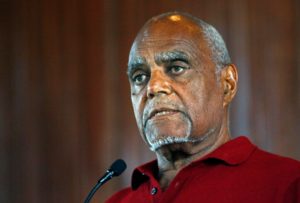
Bob Moses was teaching math at the Horace Mann School in the Bronx when scenes of Black people sitting at lunch counters across the South inspired him to become an activist. Credit…Rogelio V. Solis/Associated Press
By Michael Levenson, Clay Risen and Eduardo Medina
July 25, 2021
New York Times
Bob Moses, a soft-spoken pioneer of the civil rights movement who faced relentless intimidation and brutal violence to register Black voters in Mississippi in the 1960s, and who later started a national organization devoted to teaching math as a means to a more equal society, died on Sunday at his home in Hollywood, Fla. He was 86.
His daughter Maisha Moses confirmed his death. She did not specify a cause.
Mr. Moses cut a decidedly different image from other prominent Black figures in the 1960s, especially those who sought change by working with the country’s white political establishment.
Typically dressed in denim bib overalls and seemingly more comfortable around sharecroppers than senators, he insisted that he was an organizer, not a leader. He said he drew inspiration from an older generation of civil rights organizers, like Ella Baker, a leader of the Southern Christian Leadership Conference, and her “quiet work in out-of-the-way places and the commitment of organizers digging into local communities.”
“He exemplified putting community interests above ego and personal interest,” Derrick Johnson, the president of the N.A.A.C.P., said in a phone interview. “If you look at his work, he was always pushing local leadership first.”
In 1960 he left his job as a high school teacher in New York City for Mississippi, where he organized poor, illiterate and rural Black residents, and quickly became a legend among civil rights organizers in a state known for enforcing segregation with cross burnings and lynchings. Over the next five years, he helped to register thousands of voters and trained a generation of organizers in makeshift freedom schools.
White segregationists, including local law enforcement officials, responded to his efforts with violence. At one point during a voter-registration drive, a sheriff’s cousin bashed Mr. Moses’ head with a knife handle. Bleeding, he kept going, staggering up the steps of a courthouse to register a couple of Black farmers. Only then did he seek medical attention. There was no Black doctor in the county, Mr. Moses later wrote, so he had to be driven to another town, where nine stitches were sewn into his head.
Another time, three Klansmen shot at a car in which Mr. Moses was a passenger as it drove through Greenwood, Miss., Mr. Moses cradled the bleeding driver and managed to bring the careening car to a stop.
Arrested and jailed many times, Mr. Moses developed a reputation for extraordinary calm in the face of horrific violence. Taylor Branch, the author of “Parting the Waters,” a Pulitzer Prize-winning account of the early civil rights movement, told The New York Times in 1993 that “in Mississippi, Bob Moses was the equivalent of Martin Luther King.”
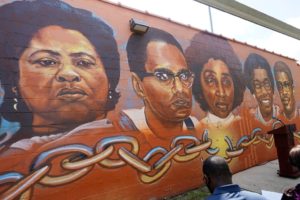
A mural of civil rights leaders, including Mr. Moses, second from left, was unveiled at Jackson State University in Mississippi on Saturday. Credit…Rogelio V. Solis/Associated Press
Although less well-known than some of his fellow organizers, such as the Rev. Dr. Martin Luther King Jr., Fannie Lou Hamer and John Lewis, Mr. Moses played a role in many of the turning points in the struggle for civil rights.
He volunteered for and later joined the staff of the Student Nonviolent Coordinating Committee, where he focused on voter registration drives across Mississippi. He was also a director of the Council of Federated Organizations, another civil rights group in the state.
Mr. Moses also helped to start the 1964 Mississippi Freedom Summer Project, which recruited college students in the North to join Black Mississippians in voter registration campaigns across the state, according to the Martin Luther King Jr. Research and Education Institute at Stanford University.
Their efforts that summer were often met with brutal resistance. Three activists – James E. Chaney, who was Black, and Andrew Goodman and Michael H. Schwerner, who were white – were murdered in rural Neshoba County, Miss., just a few weeks after the campaign began.
That same year, when Black people were excluded from the all-white Mississippi delegation at the Democratic National Convention in Atlantic City, N.J., Mr. Moses helped create the Mississippi Freedom Democratic Party, which sought recognition as the state’s delegation instead.
Mr. Moses, King, Hamer and Bayard Rustin negotiated directly with Senator Hubert H. Humphrey of Minnesota, who was running for vice president. Although King favored a compromise in which the Freedom Party delegates would be given two seats alongside the all-white delegation, Mr. Moses and other Freedom Party leaders held out for full recognition.
Mr. Moses later recalled that he was in Mr. Humphrey’s suite at the Pageant Motel when Walter Mondale, Minnesota’s attorney general and head of the party’s credentials committee, suddenly announced on television that the Mississippi Freedom Democratic Party had accepted the “compromise.”
“I stomped out of the room, slamming the door in Hubert Humphrey’s face,” Mr. Moses recalled in the book “Radical Equations: Civil Rights from Mississippi to the Algebra Project,” which he wrote with Charles E. Cobb Jr.
Mr. Moses called the convention a “watershed in the movement” because it showed that support from the party’s white establishment was “puddle-deep,” and he despaired over the possibility of building a biracial coalition that also bridged class divisions.
“You cannot trust the system,” he said in 1965. “I will have nothing to do with the political system any longer.”
Robert Parris Moses was born on Jan. 23, 1935, in New York City, one of three children of Gregory H. Moses, a janitor, and Louise (Parris) Moses, a homemaker.
In a 2014 interview with Julian Bond, Mr. Moses credited his parents with fostering his love of learning, recalling that they would collect books for him every week from the local library in Harlem.
He was raised in the Harlem River Houses, a public housing complex, and attended Stuyvesant High School, a selective institution with a strong emphasis on math. He played basketball and majored in philosophy and French at Hamilton College in Clinton, N.Y.
He earned a master’s degree in philosophy in 1957 from Harvard University, and was working toward his doctorate when he was forced to leave because of the death of his mother and the hospitalization of his father, according to the King Institute. He moved back to New York, where he taught math at the private Horace Mann School in the Riverdale section of the Bronx.
Already active in the local civil rights movement, he left for Mississippi after seeing scenes in the news of Black people picketing and sitting at lunch counters across the South. The images “hit me powerfully, in the soul as well as the brain,” he recalled in “Radical Equations.”
His natural confidence and calm demeanor drew people to him, and he soon became something of a civil rights celebrity. He was a hero of many books on the movement, and an inspiration for the 2000 movie “Freedom Song,” starring Danny Glover.
Eventually the fame got to be too much – not only because it added to the stress of an already overwhelming task, but also because he thought it was dangerous for the movement. He resigned from the Council of Federated Organizations in December 1964 and from S.N.C.C. two months later. He was, he said, “too strong, too central, so that people who did not need to, began to lean on me, to use me as a crutch.”
Mr. Moses grew active in the movement against the Vietnam War, and in April 1965 he spoke at his first antiwar protest, in Washington, D.C. “The prosecutors of the war,” he said, were “the same people who refused to protect civil rights in the South” – a charge that drew criticism from moderates in the civil rights movement and from white liberals, who worried about alienating President Lyndon B. Johnson.
Not long afterward, he received a notice that his draft number had been called. Because he was five years past the age limit for the draft, he suspected it was the work of government agents.
Mr. Moses and his wife, Janet, moved to Tanzania, where they lived in the 1970s and where three of their four children were born. After eight years teaching in Africa, Mr. Moses returned to Cambridge, Mass., to continue working toward a Ph.D. in the philosophy of mathematics at Harvard.
In addition to his wife and daughter, Mr. Moses is survived by another daughter, Malaika; his sons Omowale and Tabasuri; and seven grandchildren.
When his eldest child, Maisha, entered the eighth grade in 1982, Mr. Moses was frustrated that her school did not offer algebra, so he asked the teacher to let her sit by herself in class and do more advanced work.
The teacher invited Mr. Moses, who had just received a MacArthur “genius” grant, to teach Maisha and several classmates. The Algebra Project was born.
The project was a five-step philosophy of teaching that can be applied to any concept, he wrote, including physical experience, pictorial representation, people talk (explain it in your own words), feature talk (put it into proper English) and symbolic representation.
“He understood that the literacies necessary for the 21st century were very different from the ones needed in the Industrial Age,” Courtland Cox, a veteran civil rights leader and a friend of Mr. Moses, said in a phone interview.
By the early 1990s, the program had stretched to places including Boston and San Francisco, winning accolades from the National Science Foundation and reaching 9,000 children.
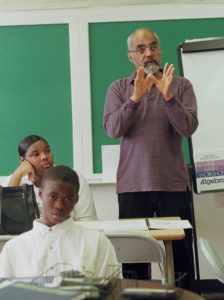
Mr. Moses teaching an algebra class at Lanier High School in Jackson, Miss., in 1999. His Algebra Project exposed teachers and students to the latest innovations in mathematics. Credit…AP Photo/Rogelio Solis
Mr. Moses saw teaching “math literacy” as a direct extension of his civil rights work in Mississippi.
“I believe that the absence of math literacy in urban and rural communities throughout this country is an issue as urgent as the lack of registered Black voters in Mississippi was in 1961,” he wrote in “Radical Equations.”
In the summer of 2020, when the murder of George Floyd in Minneapolis touched off global protests against systemic racism and police brutality, Mr. Moses said that the country seemed to be undergoing an “awakening.”
“I certainly don’t know, at this moment, which way the country might flip,” Mr. Moses told The New York Times. “It can lurch backward as quickly as it can lurch forward.”
Like this:
Like Loading...
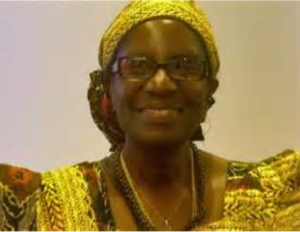 Against Racism in Durban, South Africa in 2001 and working consistently with the Sixth Region Diaspora Caucus (SRDC) since its 2006 founding to establish representation for the African Diaspora in the African Union, pursuant to the AU’s African Diaspora Initiative which it had proclaimed in 2003. She has attended meetings, conferences and public sessions at the African Union Headquarters in Addis Ababa, as well as the United Nations Headquarters in New York City and Geneve, Switzerland. She has been a tireless advocate for the African Diaspora on the ground in The Netherlands where she currently lives, promoting the “Sixth Region” African Diaspora and mobilizing against such racist traditions as “Svarte Piet”, or “Black Pete”, a Christmas holiday tradition in many sectors of Dutch life which reinforces anti-Black stereotypes.
Against Racism in Durban, South Africa in 2001 and working consistently with the Sixth Region Diaspora Caucus (SRDC) since its 2006 founding to establish representation for the African Diaspora in the African Union, pursuant to the AU’s African Diaspora Initiative which it had proclaimed in 2003. She has attended meetings, conferences and public sessions at the African Union Headquarters in Addis Ababa, as well as the United Nations Headquarters in New York City and Geneve, Switzerland. She has been a tireless advocate for the African Diaspora on the ground in The Netherlands where she currently lives, promoting the “Sixth Region” African Diaspora and mobilizing against such racist traditions as “Svarte Piet”, or “Black Pete”, a Christmas holiday tradition in many sectors of Dutch life which reinforces anti-Black stereotypes.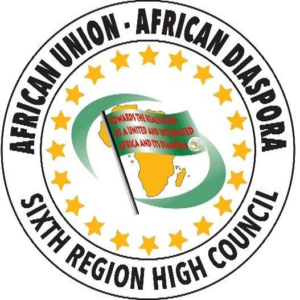

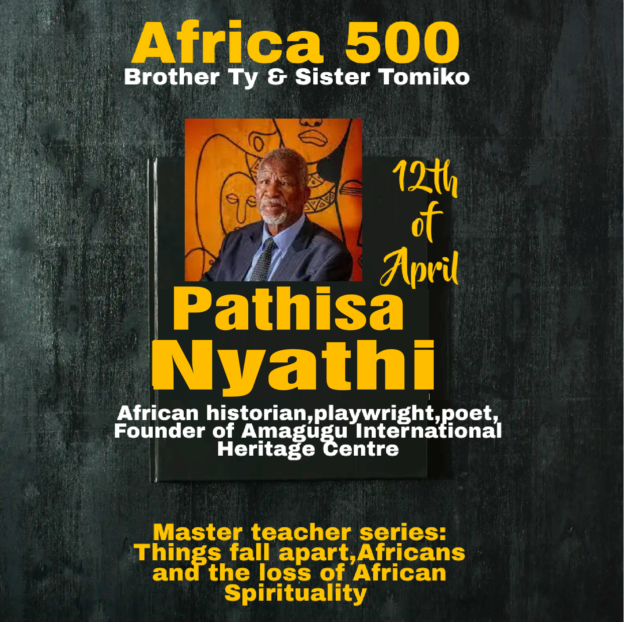
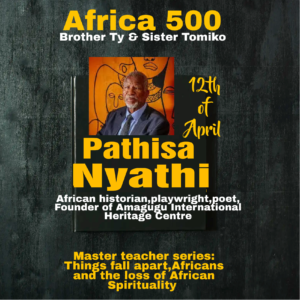
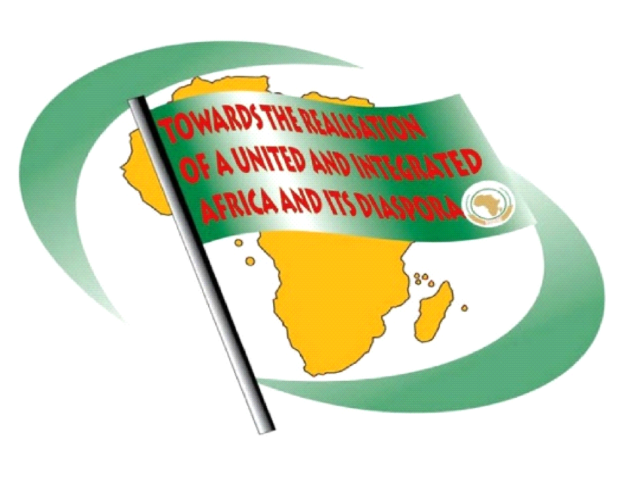
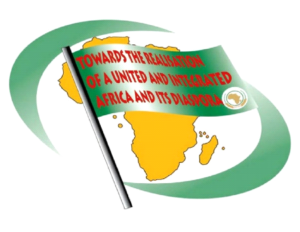 The Global Pan African Roots-Synergy Roundtable was held in Addis Ababa, Ethiopia from May 23-27, 2022. The objective of the Global Pan African Roots-Synergy Roundtable was to bring to a resolution several of the issues that have delayed the unification of the Global Pan-Afrikan Diaspora and the representation of our collective voice on the World Stage.
The Global Pan African Roots-Synergy Roundtable was held in Addis Ababa, Ethiopia from May 23-27, 2022. The objective of the Global Pan African Roots-Synergy Roundtable was to bring to a resolution several of the issues that have delayed the unification of the Global Pan-Afrikan Diaspora and the representation of our collective voice on the World Stage.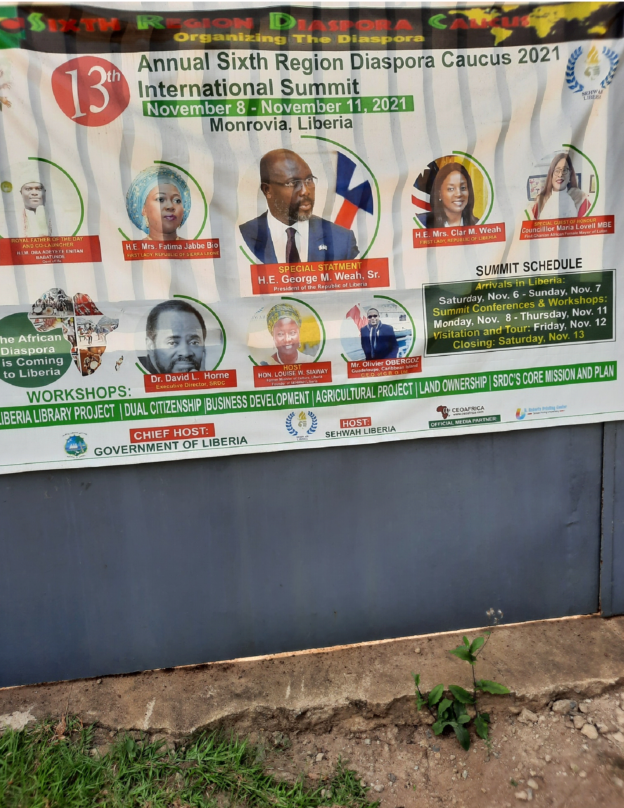
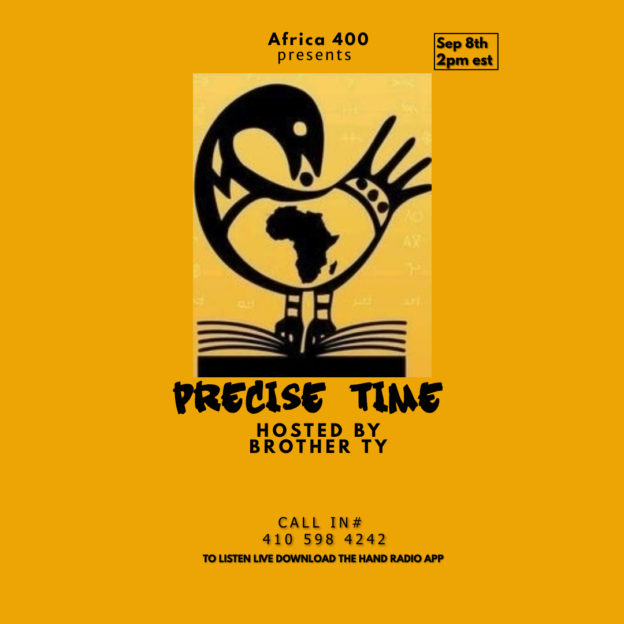
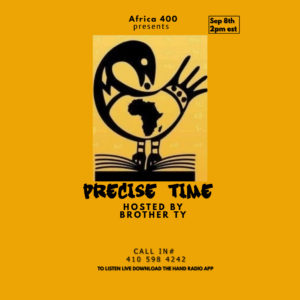 Baba Ty hosts “Precise Time” on the Wednesday, September 8 edition of Africa400. Baba Ty examines the key issues of the day from his perspective as a developmental psychologist, cultural historian and Pan-Afrikan activist.
Baba Ty hosts “Precise Time” on the Wednesday, September 8 edition of Africa400. Baba Ty examines the key issues of the day from his perspective as a developmental psychologist, cultural historian and Pan-Afrikan activist.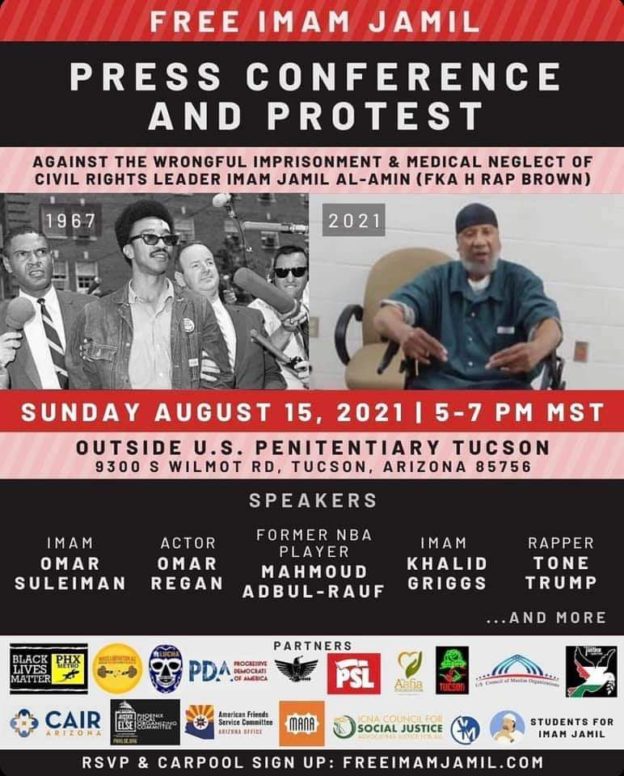
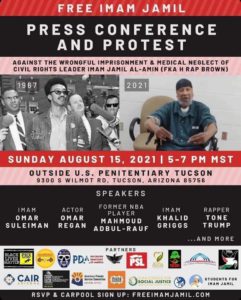 Sunday, August 15 sees a Press Conference and Protest against the wrongful imprisonment and medical neglect of Civil Rights leader Imam Jamil Al-Amin, formerly known as H. Rap Brown.
Sunday, August 15 sees a Press Conference and Protest against the wrongful imprisonment and medical neglect of Civil Rights leader Imam Jamil Al-Amin, formerly known as H. Rap Brown.


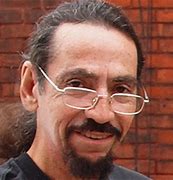 Groundbreaking Revolutionary Pan-Afrikan journalist, commentator, analyst, co-founder of The Black Commentator and founder of Black Agenda Report, Glen Ford, has passed on to the Honored Ancestors at the age of 71. He and fellow Black Agenda Report columnist Bruce A. Dixon, who became an Ancestor in 2019, helped form the backbone of Black Agenda Report‘s no-holds-barred, straight-no-chaser analysis of White racism as well as the “Black Misleadership Class” as they relentlessly fought for the liberation and uplift of Afrikan People.
Groundbreaking Revolutionary Pan-Afrikan journalist, commentator, analyst, co-founder of The Black Commentator and founder of Black Agenda Report, Glen Ford, has passed on to the Honored Ancestors at the age of 71. He and fellow Black Agenda Report columnist Bruce A. Dixon, who became an Ancestor in 2019, helped form the backbone of Black Agenda Report‘s no-holds-barred, straight-no-chaser analysis of White racism as well as the “Black Misleadership Class” as they relentlessly fought for the liberation and uplift of Afrikan People. 